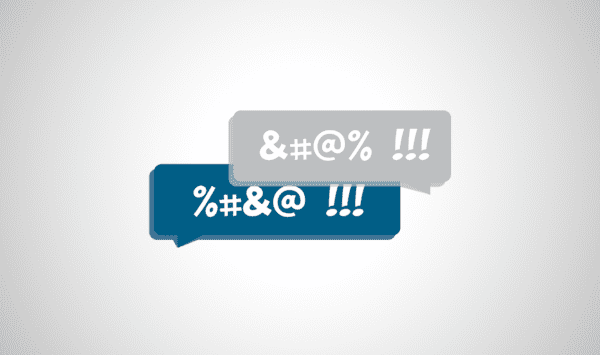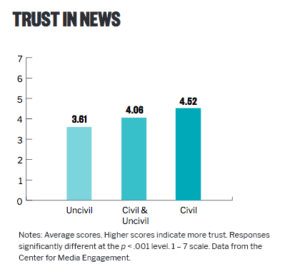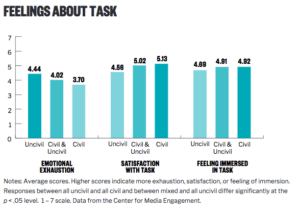
Comments sections can be brutal. When faced with an onslaught of negative messages, your first thought is most likely about how the problem will affect readers (the answer? It’s not good for your brand). But you probably haven’t considered what it means for the moderators. You should.
The Problem
As more news organizations turn to dedicated moderators (or their own journalists or employees) to take on the comments section, it’s important to know how the job is affecting those performing it. And, perhaps more importantly, what your news organization should be doing about it.
The Center for Media Engagement set out to answer two main questions:
- How does moderating uncivil comments affect trust in the news organization?
- What emotional toll does moderating uncivil comments take on the moderator?
All the comments used in the experiment were real comments posted on Breitbart, MSNBC, The New York Times, and Yahoo. Comments were reformatted so participants couldn’t tell which platform the comment came from.
Finding #1: It hurts trust in your news organization
Audience trust is important, but it’s not the only consideration. Having the trust of those who are working for your news organization is just as crucial. This study found that moderators who viewed only uncivil comments saw the news organization as less trustworthy.
Finding #2: It takes an emotional toll
Moderators who tackled only uncivil comments were more emotionally exhausted and less satisfied with their task. They also reported having a less immersive work experience.
What can newsrooms do?
Keep a close eye on your comments section. Taking steps to keep the conversation civil will lessen the load on moderators. Consider asking journalists to engage in the comments and to encourage higher-quality conversations.
Break up the task. Let moderators work on a mix of civil and uncivil comments instead of focusing solely on the negative messages. You can also give moderators other assignments.
Whatever you do, don’t be tempted to ignore the problem. Keep in mind, moderators worked in 24-minute shifts for this experiment. The toll it takes on workers putting in several hours or a full day may be much stronger.
The full report is available here.



